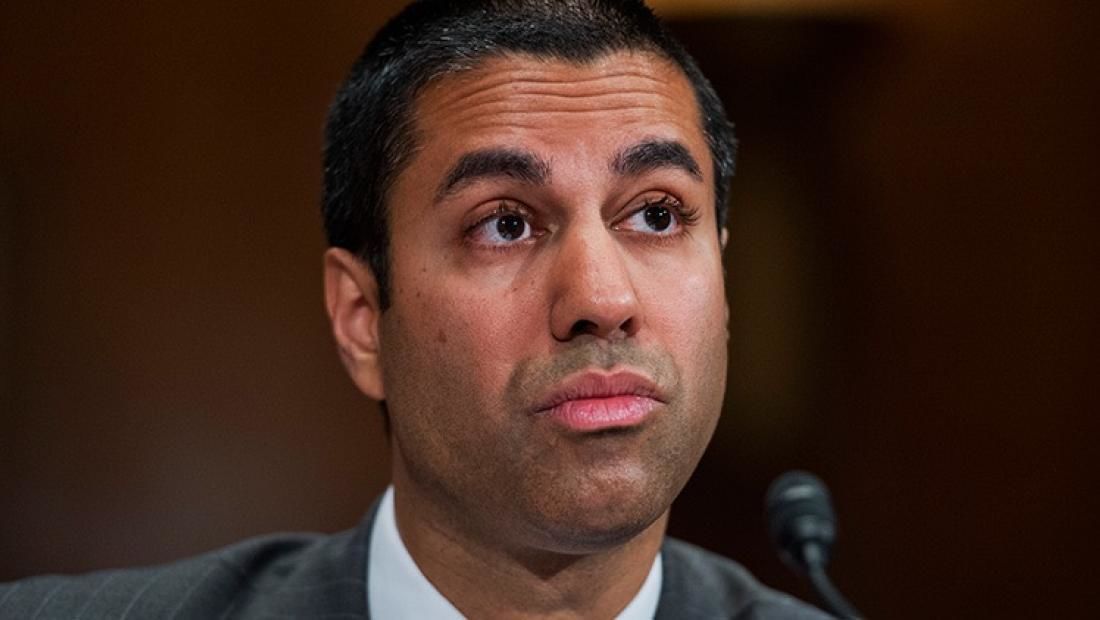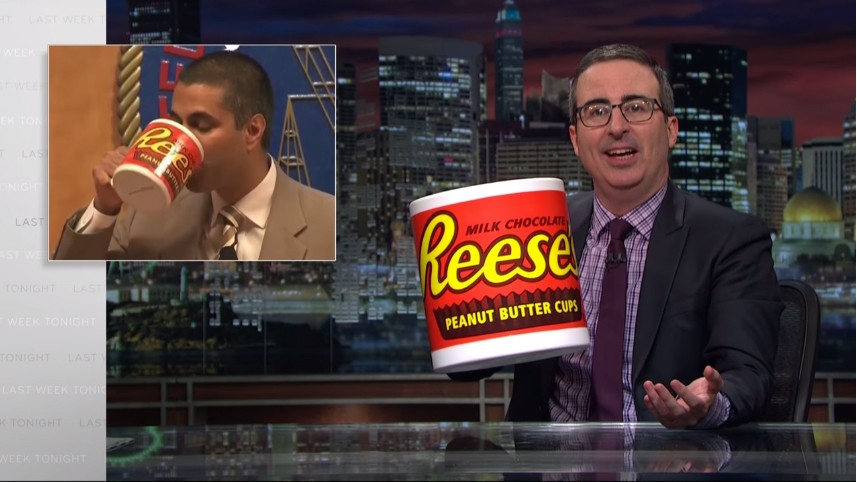Ajit Pai Recounts Ugly Pushback on One of His Toughest Decisions
Calls out John Oliver, activists, says press coverage of issue when he arrived had been biased

The smarter way to stay on top of the streaming and OTT industry. Sign up below.
You are now subscribed
Your newsletter sign-up was successful
FCC Chairman Ajit Pai spent some of his speech to the American Enterprise Institute Friday talking about how harassment and violent threats were the foreseeable outcome of over-the-top rhetoric and reckless actions by protestors who take things too far.
Also Read: Pai, Others Call Out Protestors at His Home
Pai was referring not to recent events but to the 2017 pushback by net neutrality supporters on his elimination of rules against blocking, throttling and paid prioritization, an issue he said got slanted coverage in the media.
"Net neutrality advocates approached the issue with a religious fervor," he said of the net neutrality climate when he took over the chairmanship, "and the press corps covering the issue was broadly sympathetic to their position. To be sure, some reporters would claim in private conversations that it was really their editors who were responsible for the slanted coverage, but the end result was the same."

Talking about the toughest decisions he had made during his tenure, Pai said that there had been no political upside to re-opening the net neutrality fight, but he had taken it on anyway because the downside of the rules, declining investment in high speed networks, necessitated it.
Also Read: FCC Defends Net Neutrality Order
Pai aimed blame at some familiar targets. "Egged on by John Oliver and coordinated Beltway lobbyist campaigns to, quote, 'save the Internet,' a significant number of Americans got whipped into a frenzy over this issue. And some wound up taking things too far—way too far," he said, then elaborated.
The smarter way to stay on top of the streaming and OTT industry. Sign up below.
He pointed out that he had received death threats, as had his children; that his son could not take the school bus to kindergaten without quite understanding why; that his personal information was leaked online; that his e-mail account was hacked; that he had to spend thousands of dollars of his own money on a home security system; that relatives got profane voicemails; and that unmarked packages were left at his doorstep.
"I don’t say these things seeking anybody’s pity," he told his audience. "I say these things to point out that things got out of hand. And this was a foreseeable outcome of the over-the-top rhetoric and reckless tactics used by so-called public interest groups and their political allies."
He did not mention the signs posted outside his house asking his children how they could look him in the eye as he was "murdering Democracy in cold blood," or the serial delivery of pizzas he had not ordered, according to one of his neighbors.
Pai said his three other toughest decisions were: 1) designating the Sinclair/Tribune merger for hearing, essentially a death blow (tough because President Trump supported the deal and called the FCC decision disgraceful); 2) Approving the Ligado petition, which the Department of Defense, among others, opposed; and 3) and pulling off the C-Band auction, which just closed at gross proceeds of $80,916,832,754. Pai said it may be recency bias, but that last was his favorite choice, "and there are over 80 billion reasons why."
Contributing editor John Eggerton has been an editor and/or writer on media regulation, legislation and policy for over four decades, including covering the FCC, FTC, Congress, the major media trade associations, and the federal courts. In addition to Multichannel News and Broadcasting + Cable, his work has appeared in Radio World, TV Technology, TV Fax, This Week in Consumer Electronics, Variety and the Encyclopedia Britannica.

